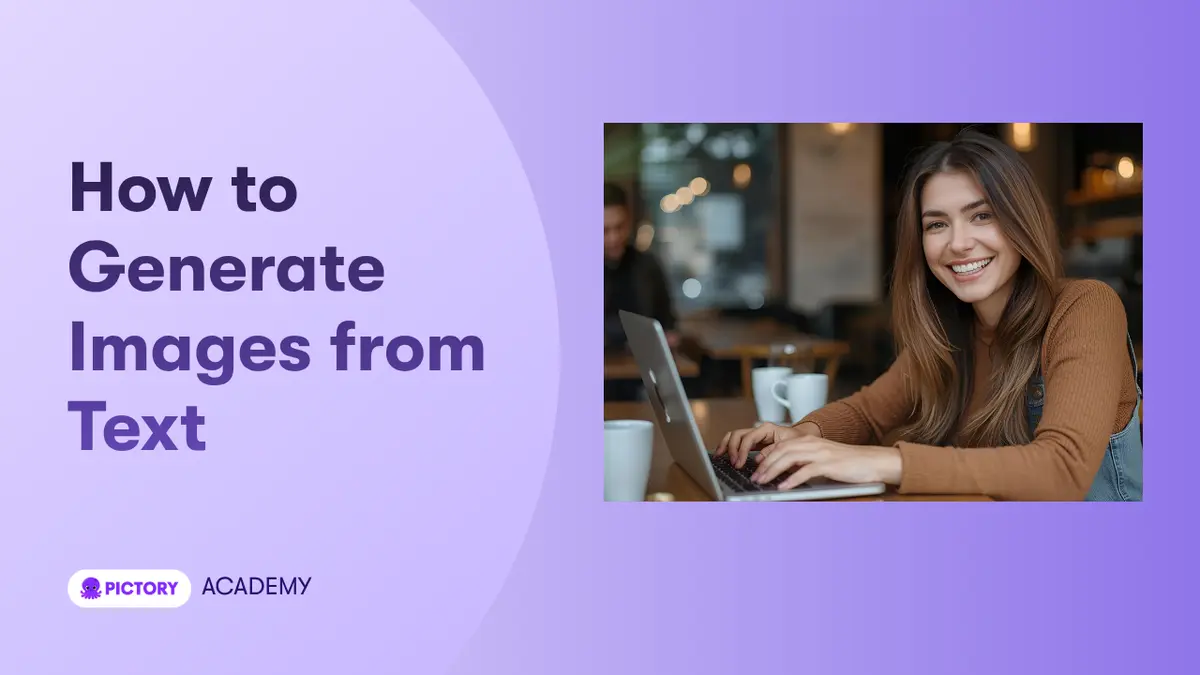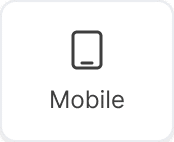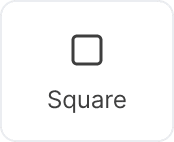The Text to Image feature in Pictory AI’s AI Studio allows you to create original, high-quality visuals from simple text prompts — directly inside your video project. Instead of searching for stock media, you can describe the image you want, and Pictory’s AI will generate it for you in seconds.
This is ideal for anyone who wants unique visuals that perfectly match their video’s script, theme, or message.
What Is the Text to Image Feature?
The Text to Image tool inside AI Studio uses advanced AI image generation models to turn your text into visuals. You can create custom imagery for each video scene, choose from multiple models and styles, and instantly apply the generated image to your storyboard.
Pictory gives you creative control over image style, realism, and framing — without leaving the Video Editor.
With Text to Image, you can:
Generate custom visuals from written prompts
Choose between different AI models (Flux, Titan, Seedream, Nano Banana)
Pick a visual style such as Photorealistic or Artistic
Create images directly from your scene text
Apply generated images instantly to your storyboard
Perfect for:
Marketers designing branded or conceptual imagery
Educators explaining complex ideas visually
Content creators producing stylized, story-driven videos
Businesses replacing stock visuals with unique, AI-generated scenes
Step-by-Step: How to Use Text to Image in AI Studio
Follow these steps to generate visuals that match your script or storyboard scenes.
Step 1: Open Your Project in the AI Video Editor
Open any existing video project from My Projects or create a new one using Text to Video, Script to Video, or URL to Video.
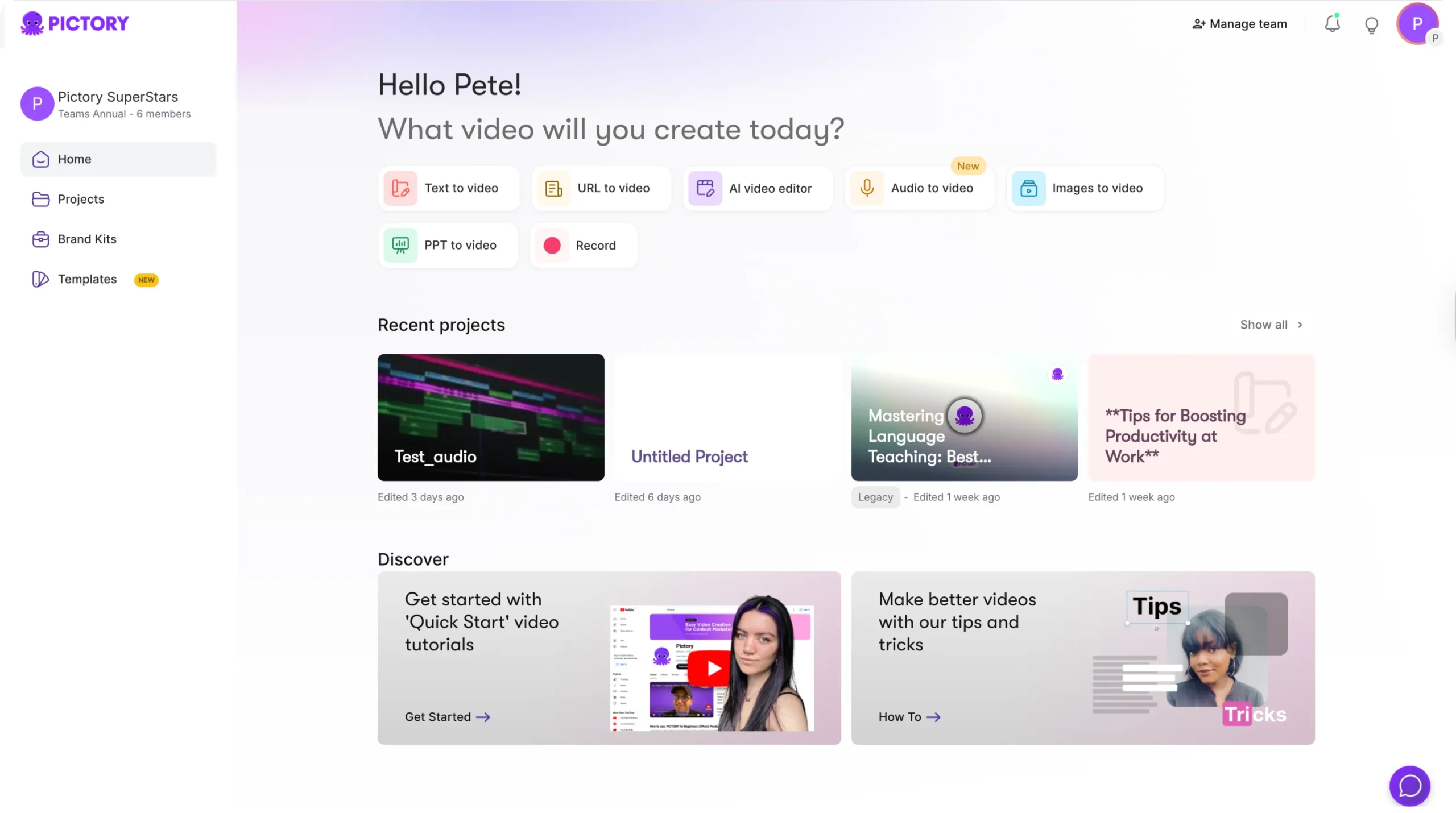
Once your storyboard loads, click on the Visuals Tab in the left-hand toolbar, then select AI Studio.
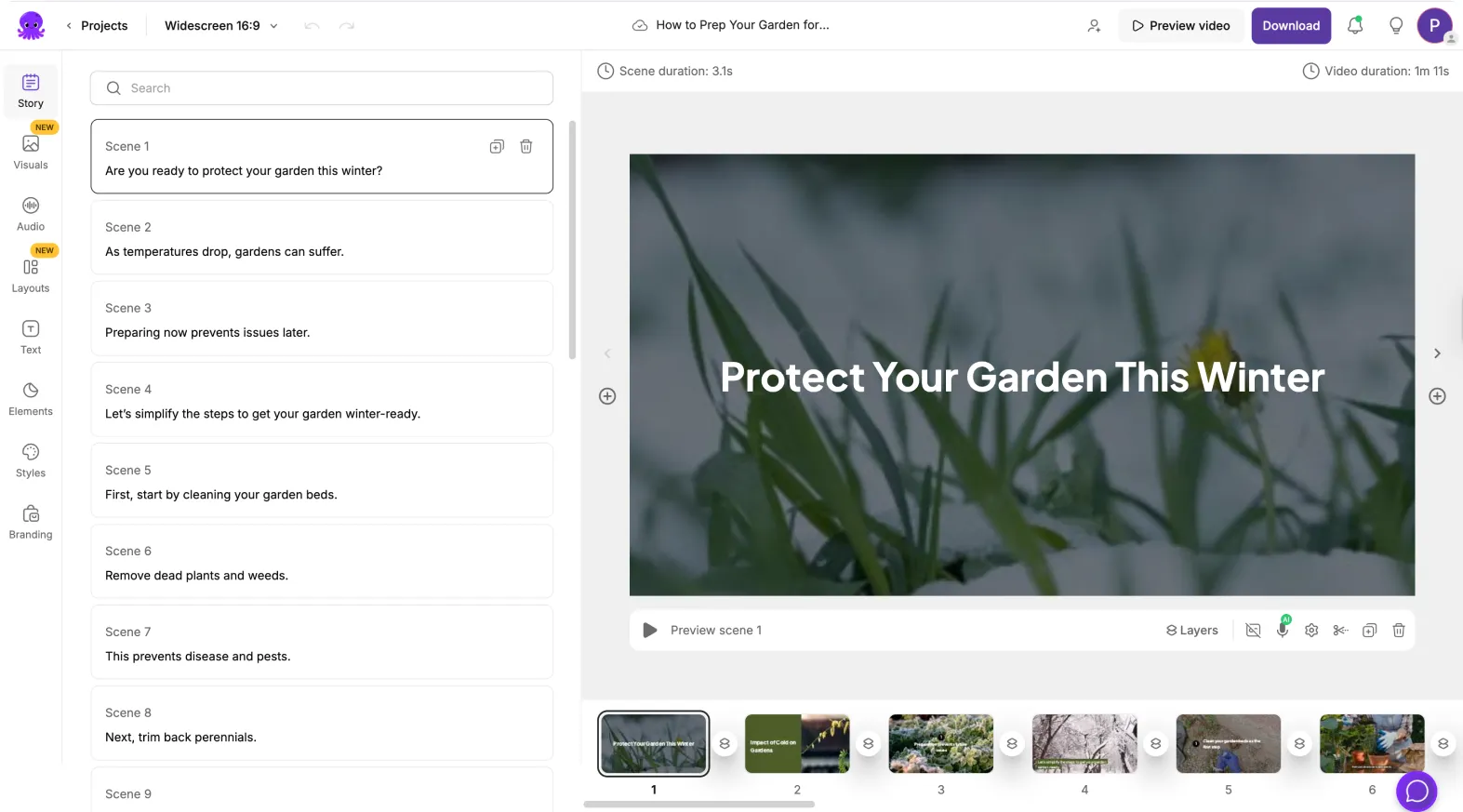
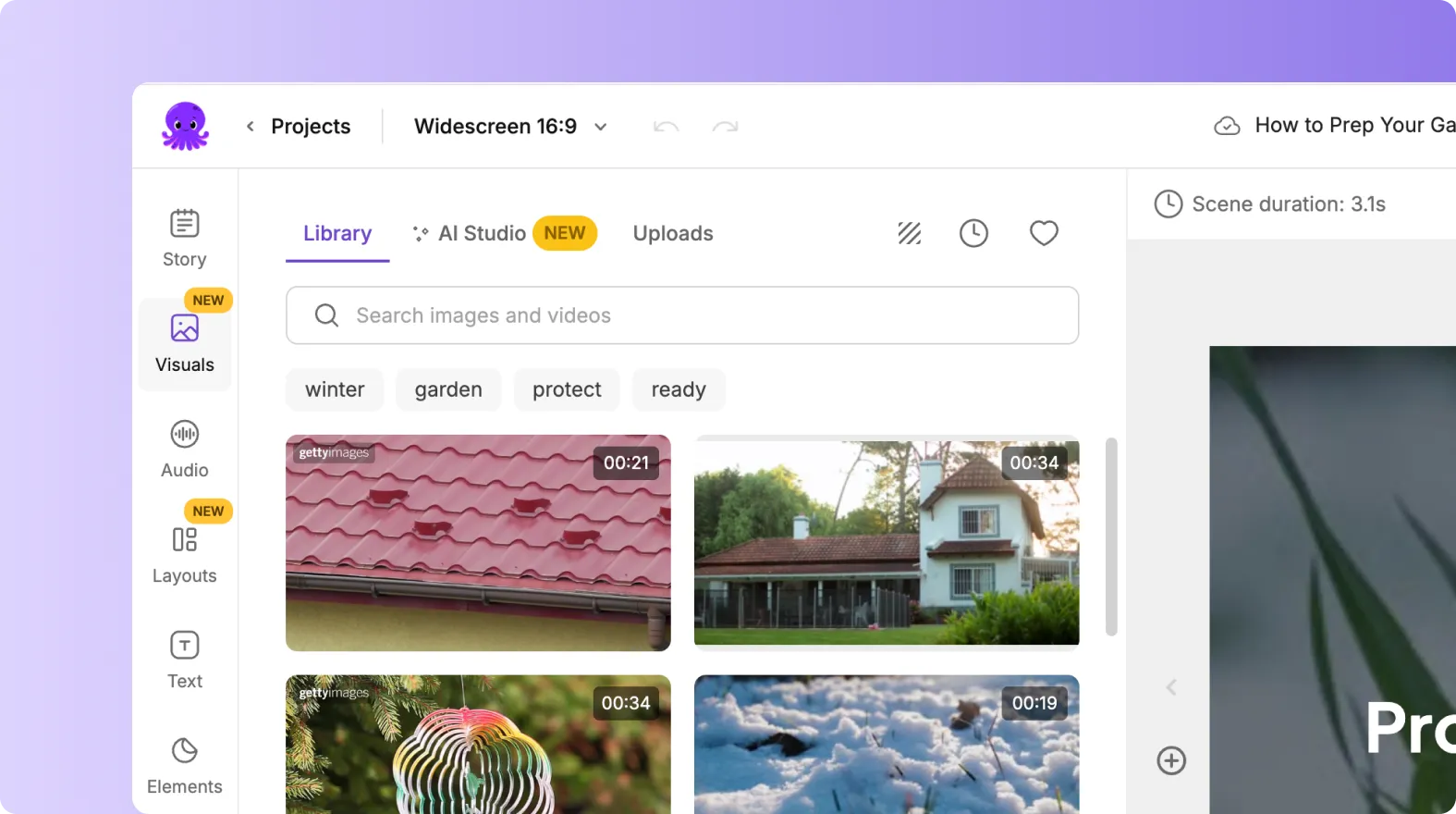
This opens the Text to Image workspace, where you can create and manage AI-generated visuals.
Step 2: Choose a Scene to Enhance
Click on a specific scene from your storyboard timeline at the bottom of the screen.
You can base your image on:
The scene text (for example, a line from your script)
Or write your own custom prompt to describe a new image concept
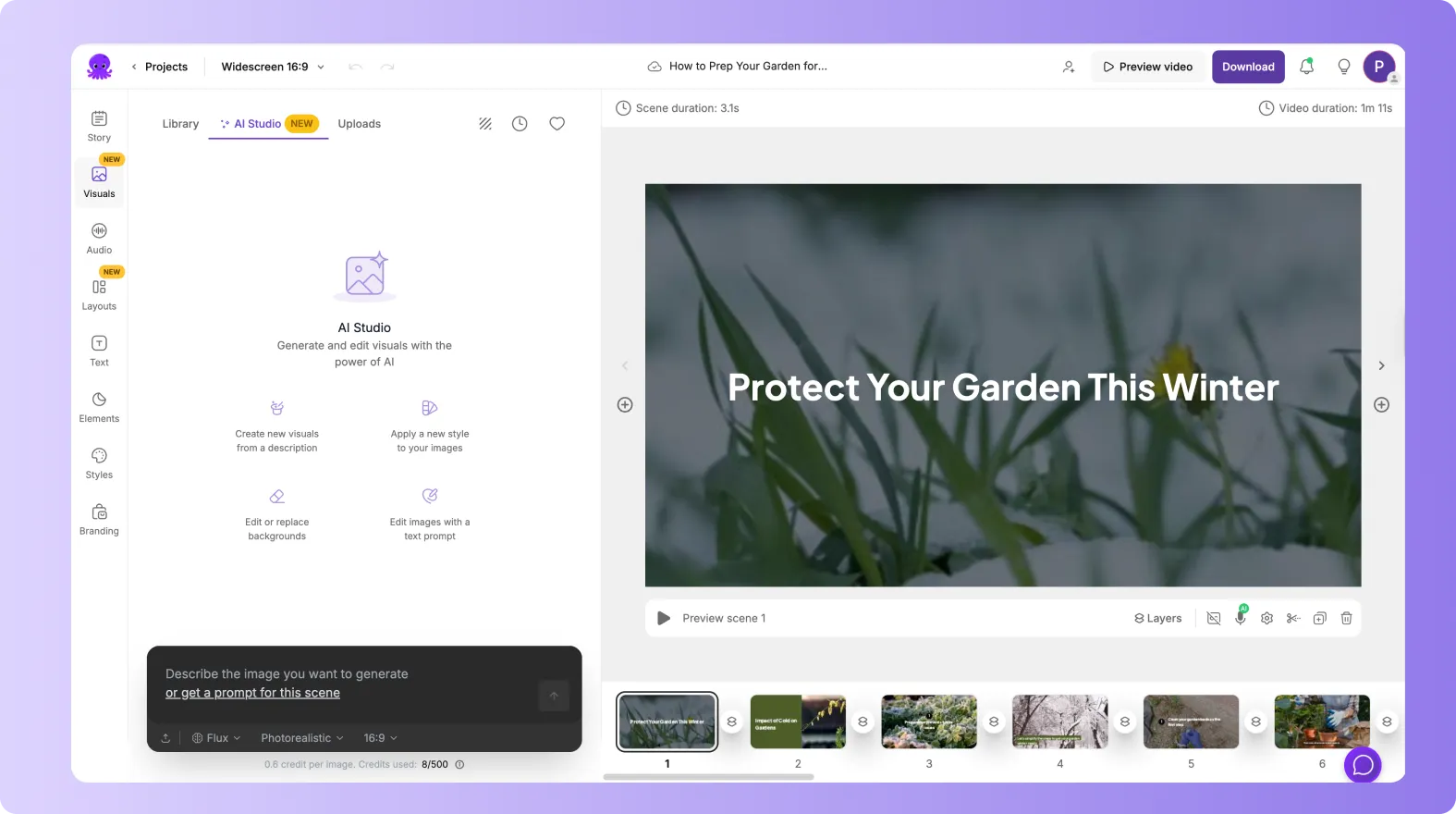
If you’re not sure what to write, click Get a prompt for this scene, and Pictory will automatically suggest a relevant prompt based on your scene text.
Step 3: Write Your Prompt
In the text box, describe the image you want to create.
For example:
“A modern home office setup with warm lighting and a laptop on a wooden desk.”
“A teacher presenting a digital lesson in a futuristic classroom.”
“A cinematic shot of a city skyline at sunset with glowing lights.”
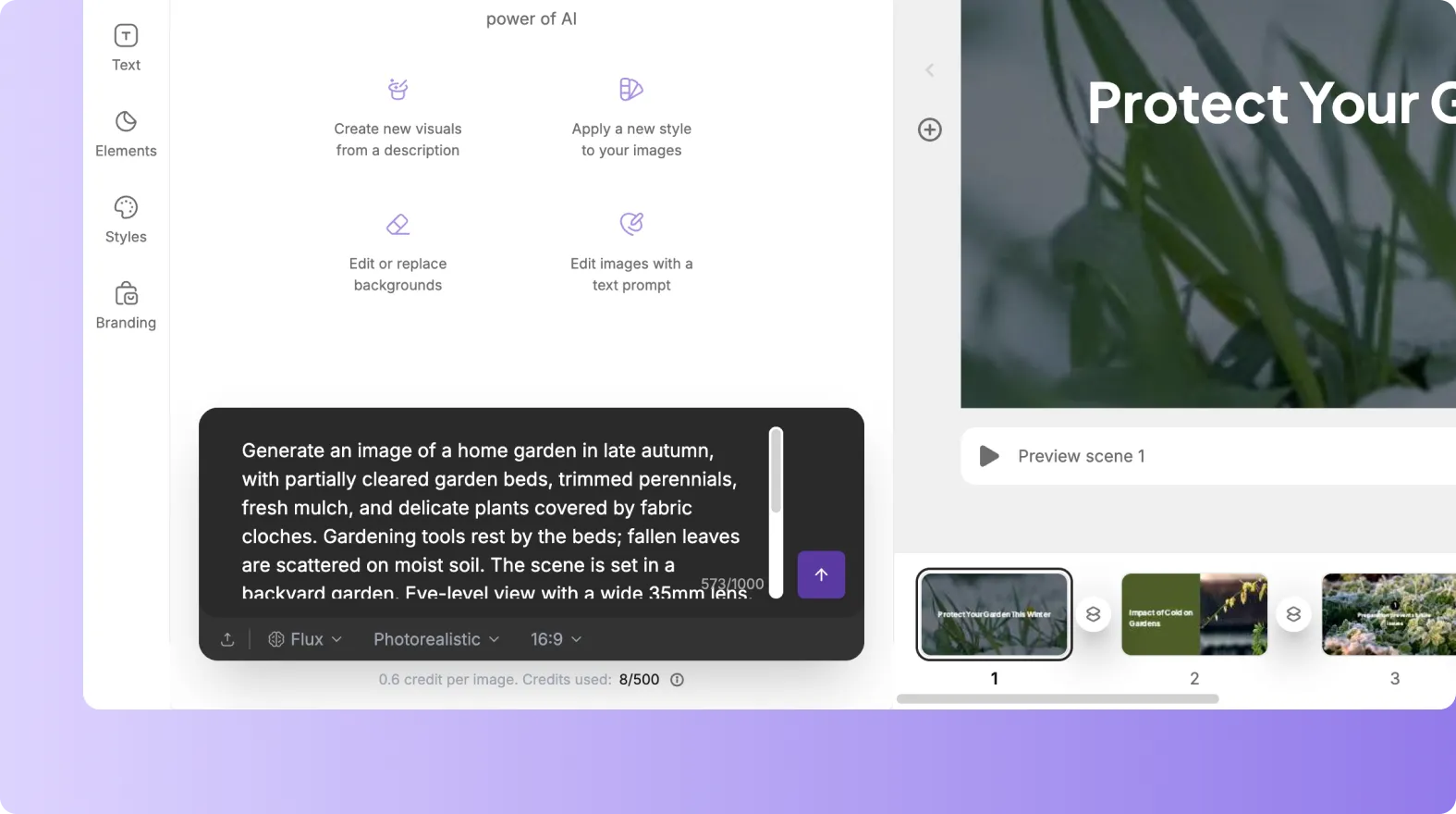
The clearer and more specific your prompt, the more accurate your generated image will be.
Step 4: Select an AI Model
Below the text box, choose the AI model that will generate your image.
Each model has its own style and performance:
Flux: Fast and cost-effective for general visuals
Titan: Balanced results with improved lighting and composition
Seedream: Advanced detail and texture quality
Nano Banana: Premium model ideal for realistic or cinematic results
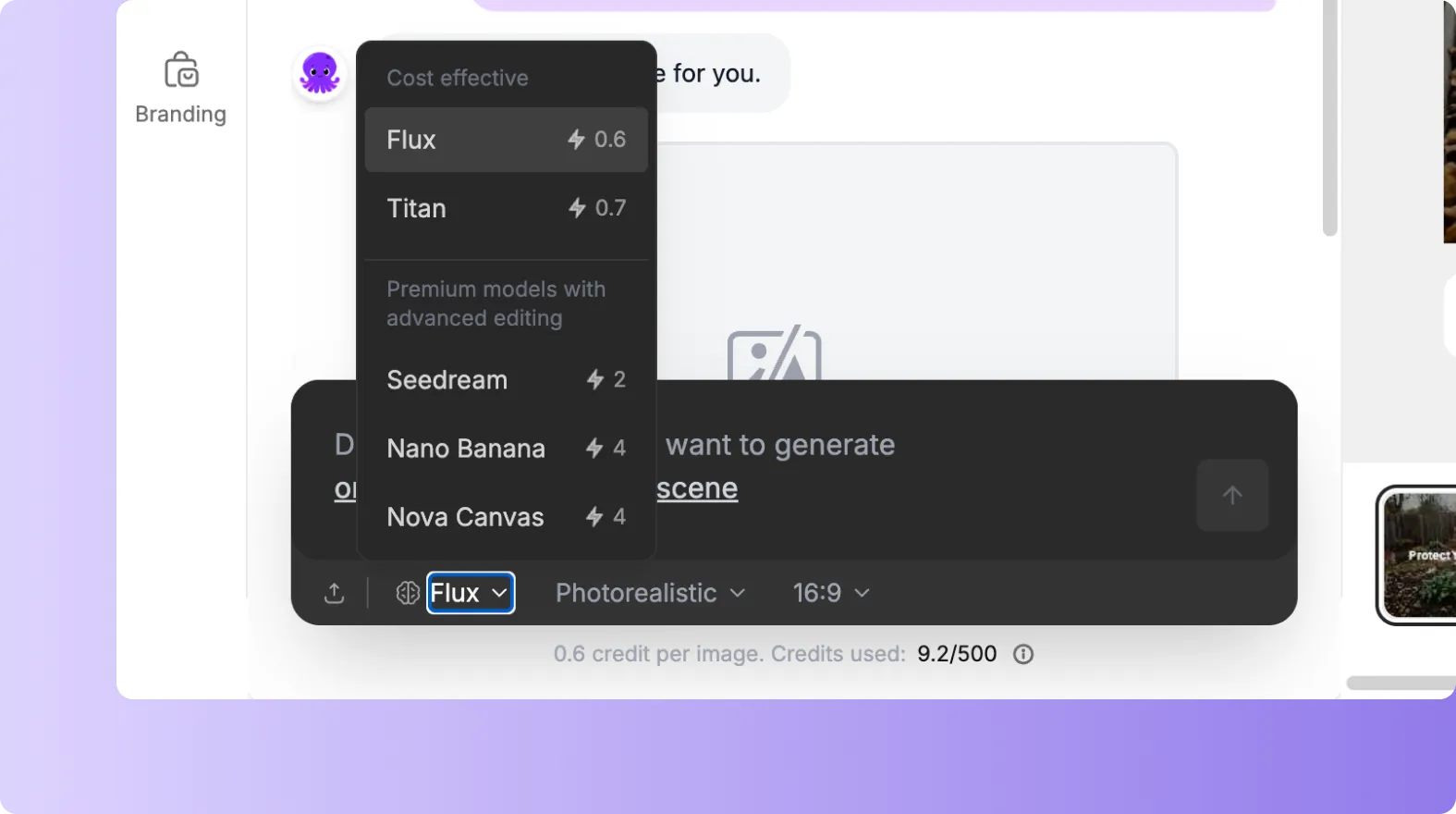
You can see the model’s credit usage displayed beside its name (for example, 0.6, 0.7, 2, or 4 credits per image).
Step 5: Select an Image Style
Next, choose your visual style from the dropdown menu. Available styles include:
Photorealistic – For lifelike, realistic images
Artistic – For painterly or creative looks
Cartoon – For playful, illustrated imagery
Minimalist – For clean, flat visuals with fewer details
Vintage – For muted tones and retro textures
Futuristic – For sleek, sci-fi-inspired imagery
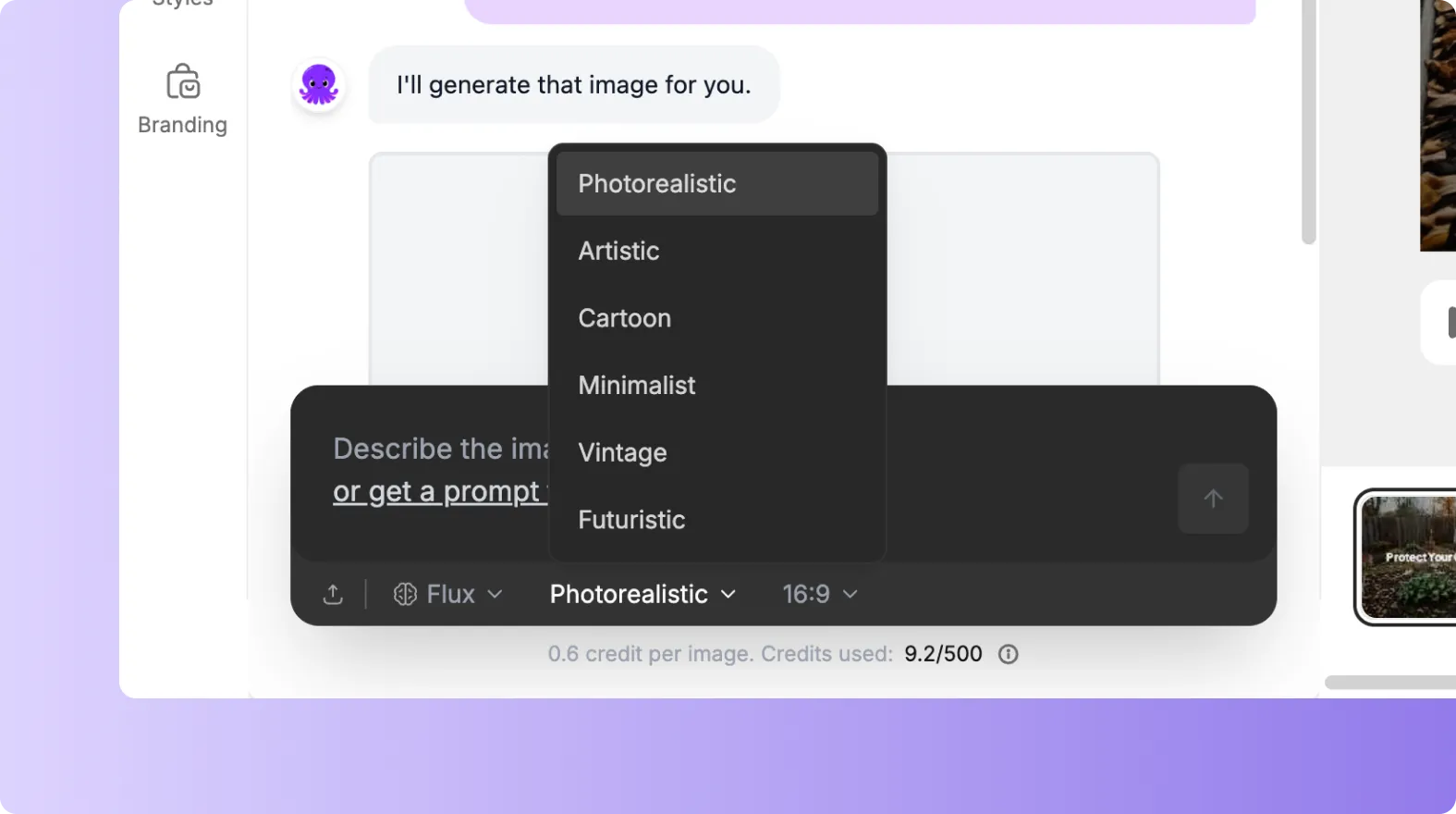
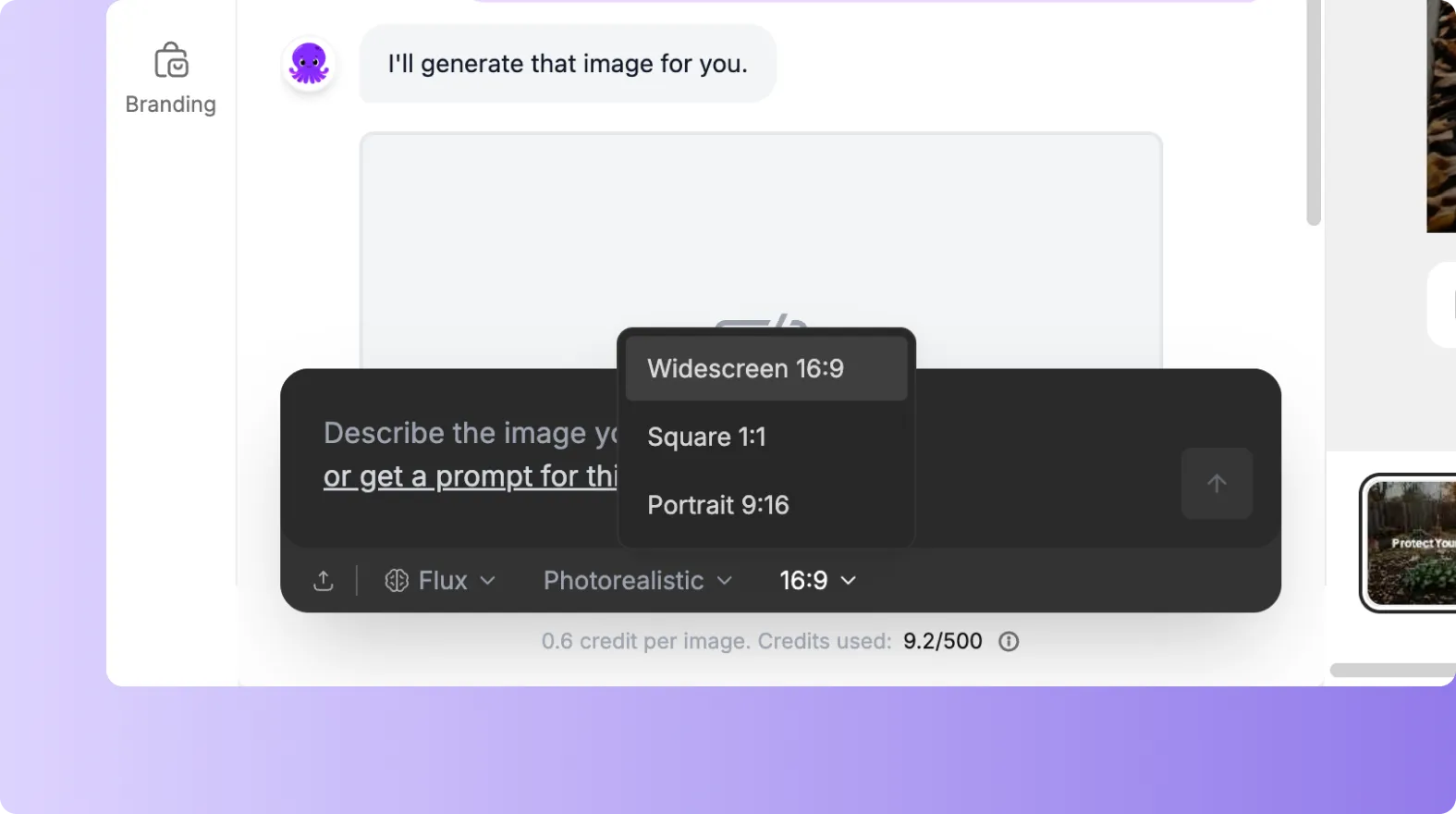
This determines how your AI-generated image will look and feel.
Step 6: Generate Your Image
Once your model and style are selected, click Generate Image.
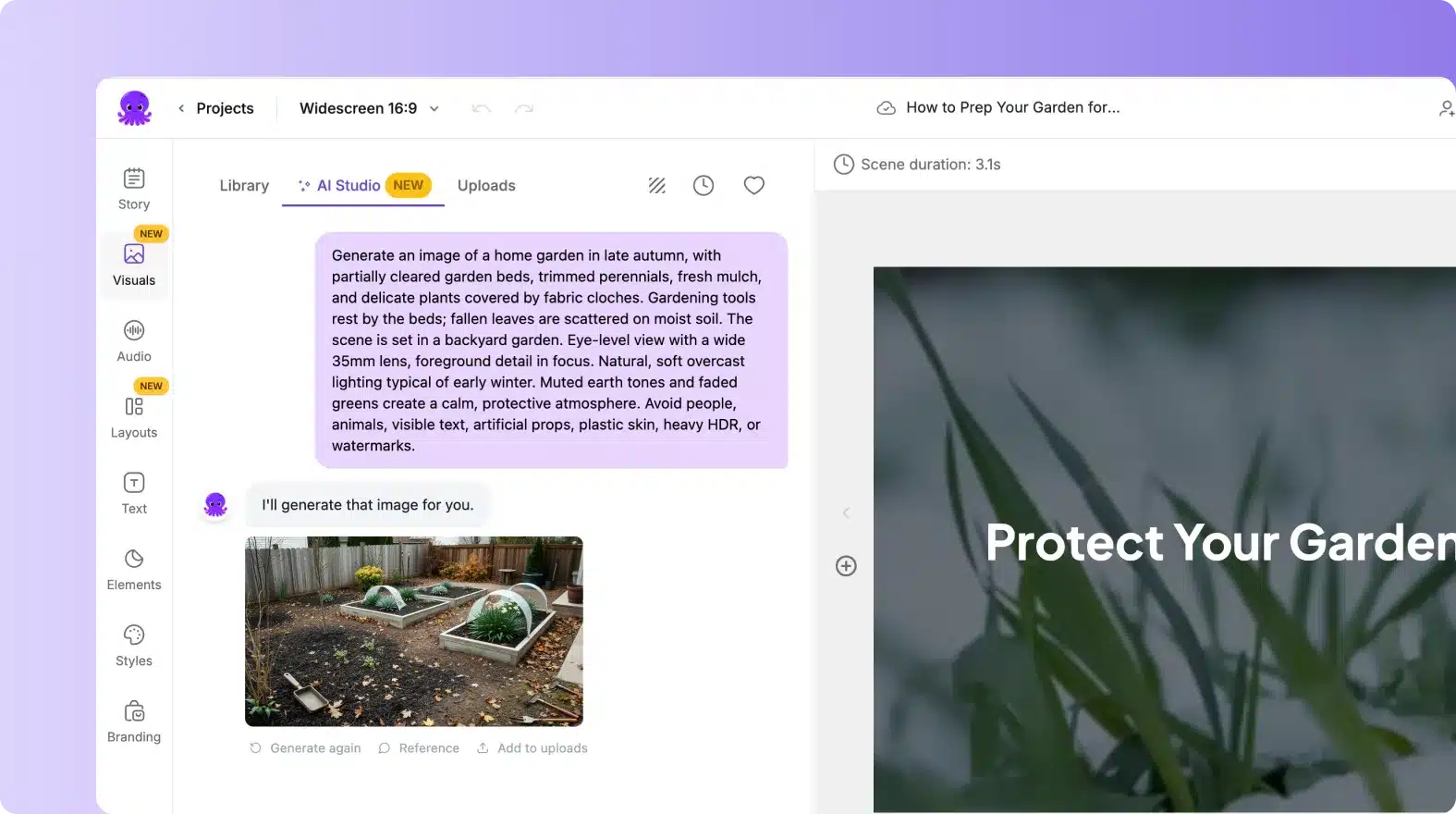
Pictory will process your request and generate a preview image based on your description. You’ll see your image appear in the Generated Image section within seconds.
Step 7: Review and Apply to Scene
Review your generated image:
If it fits your scene, click Apply to Scene to use it as the visual.
If you want a new version, adjust your prompt or try a different model or style and click Regenerate.
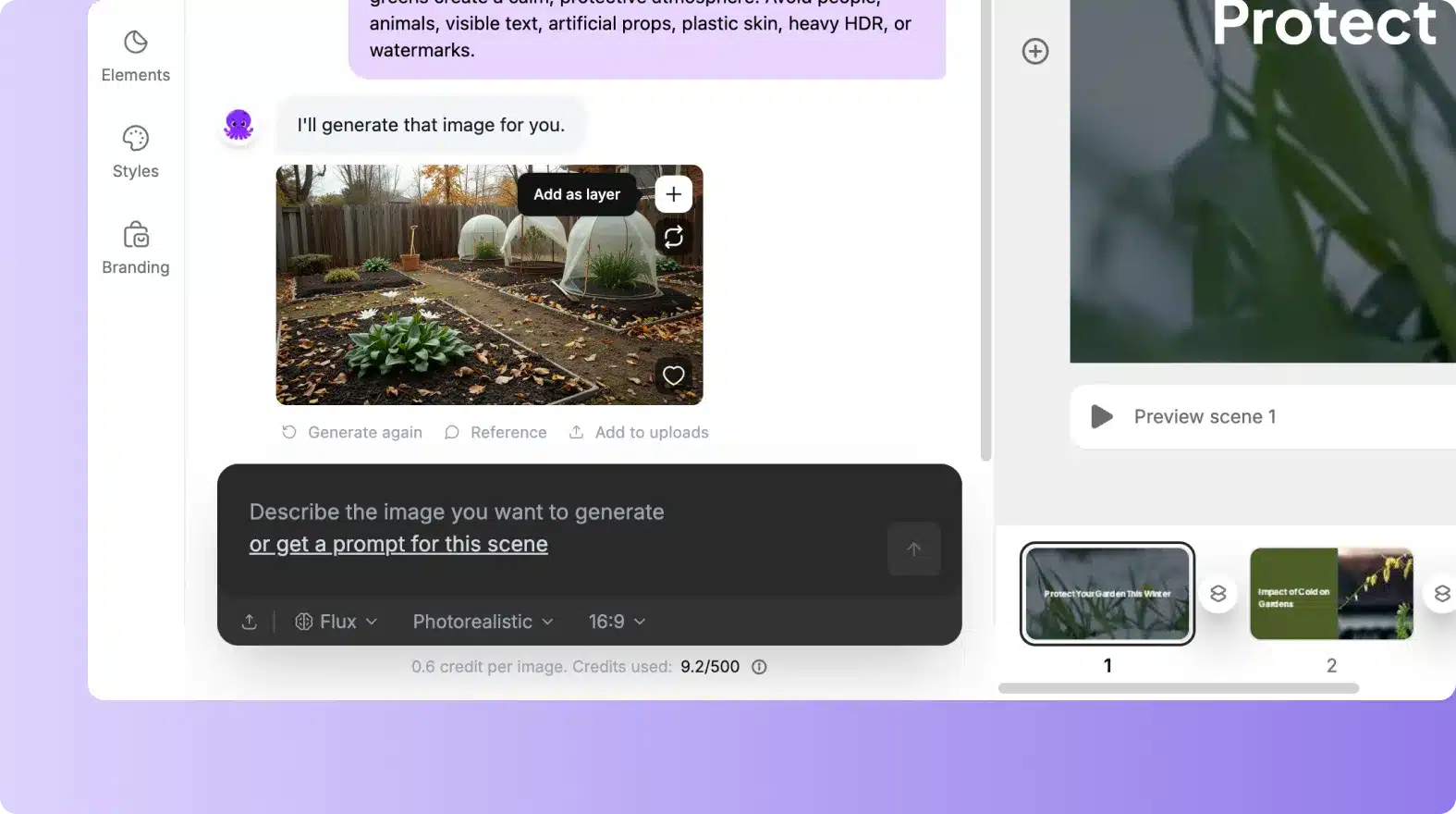
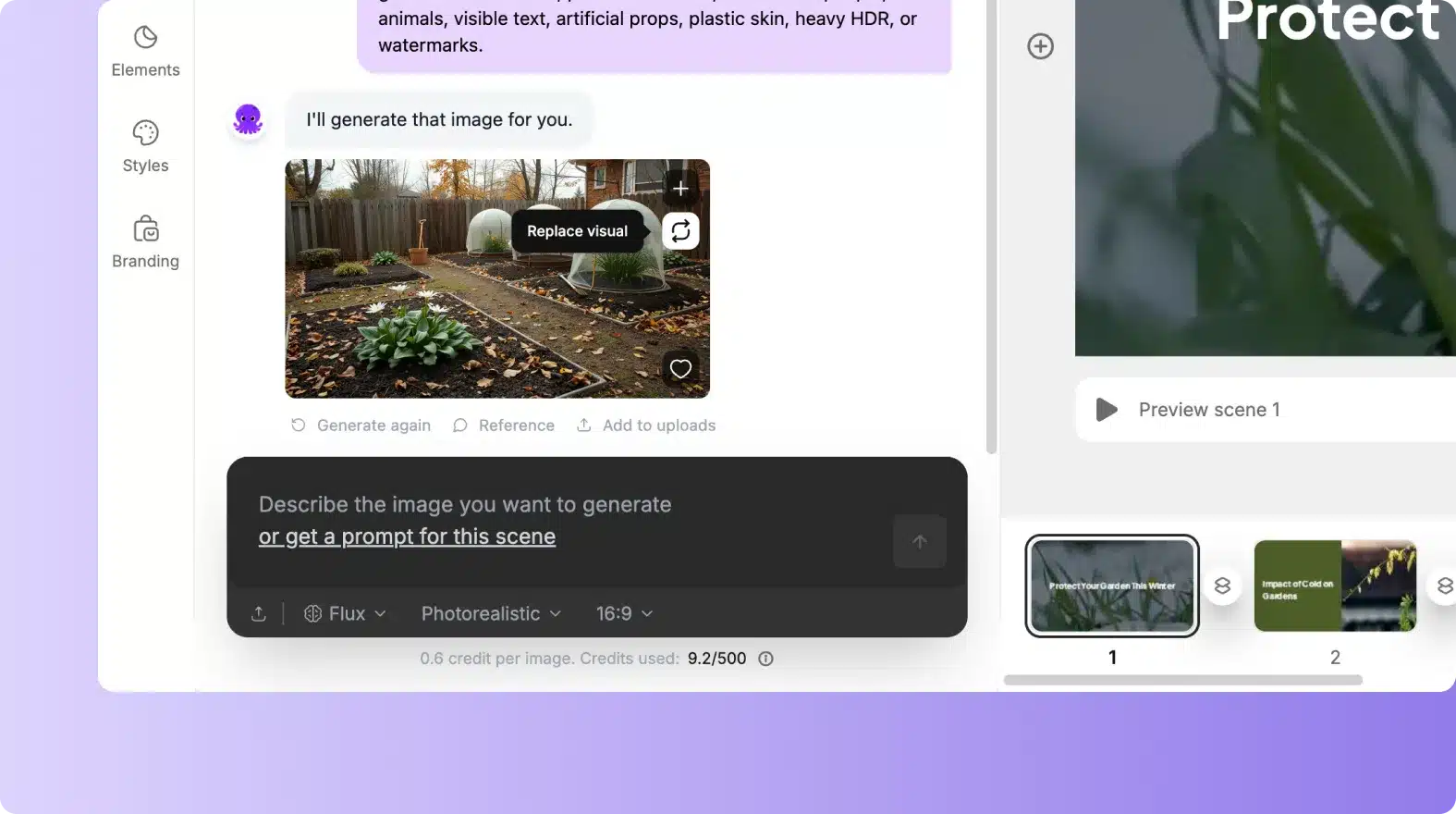
Your selected image will replace the existing visual in your storyboard while keeping your captions, text, and audio unchanged.
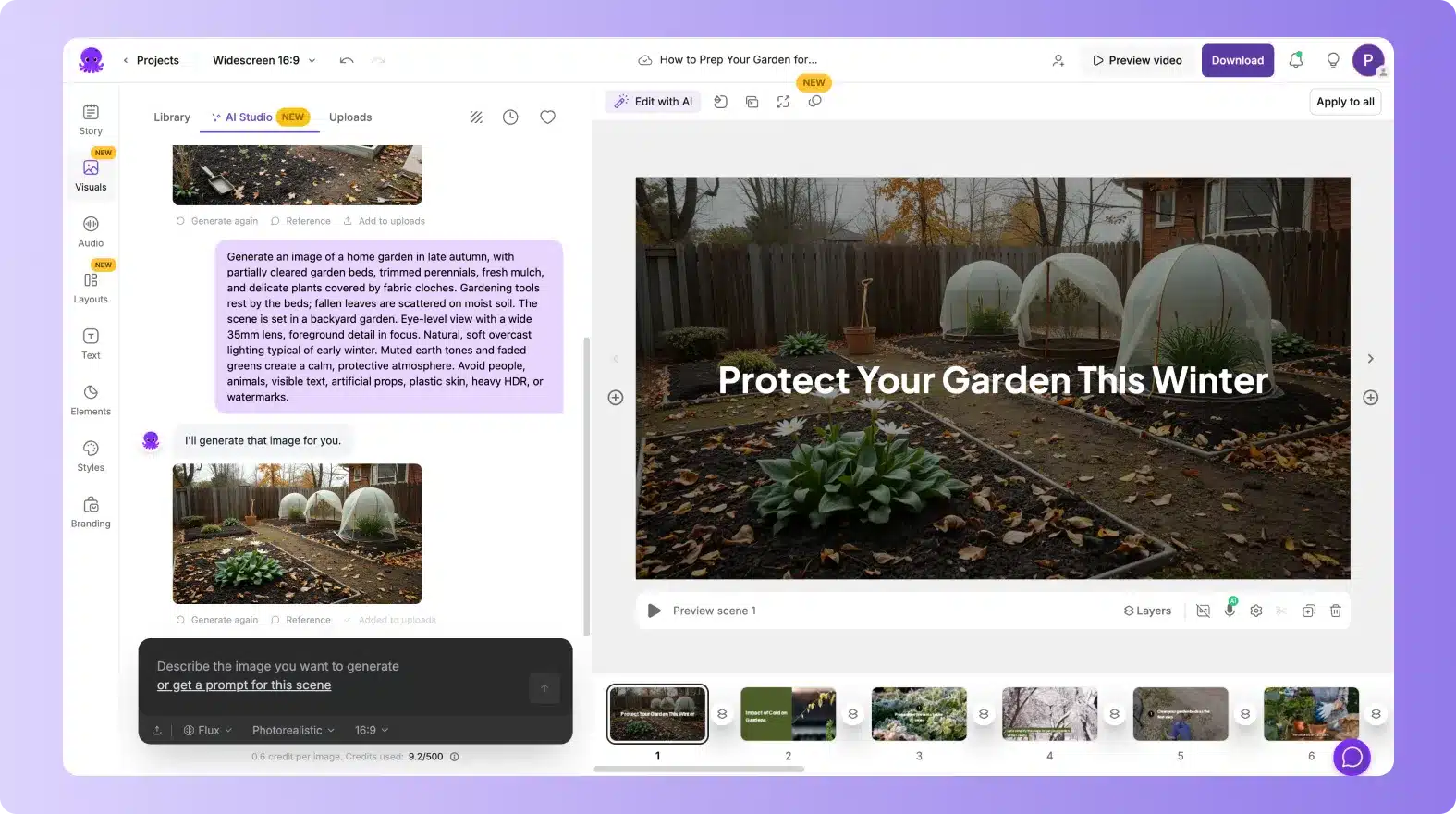
Step 8: Preview and Export
Once your new images are added, click Preview Video to see how they appear in your full project. When you’re satisfied, click Download Video to export your final version.
Your AI-generated visuals are automatically saved within your project and can be reused anytime.
Pro Tips for Generating Better Images
Start with short, descriptive prompts (10–15 words) and add detail if needed.
Include lighting, setting, and mood keywords (for example, “cinematic lighting,” “bright daylight,” “calm tone”).
Test multiple models to see which matches your preferred style.
Keep a consistent visual style across scenes for a cohesive look.
Use AI Studio to quickly fill missing visuals or customize key scenes.
Why Use Text to Image in Pictory AI Studio
AI Studio’s Text to Image feature helps you create visuals that perfectly match your story without relying on stock libraries.
You get:
Original AI-generated images based on your text or script
Multiple AI models and artistic styles to choose from
Instant scene updates directly in the Video Editor
Integrated prompt suggestions for fast results
Reusable visuals stored in your project
It’s the fastest way to make your videos visually unique and creative.
Frequently Asked Questions
Where can I find the Text to Image feature?
Inside the Visuals Tab of the AI Video Editor, under AI Studio.
What AI models can I use?
Pictory currently offers Flux, Titan, Seedream, and Nano Banana, each optimized for different image types.
Can I generate images from my scene text automatically?
Yes. Use Get a prompt for this scene to automatically generate a text prompt based on your scene’s content.
Can I choose the visual style of the image?
Yes. You can select from Photorealistic, Artistic, Cartoon, Minimalist, Vintage, or Futuristic styles.
Will my generated images save for future use?
Yes. All generated images are stored in your project and can be reused across other scenes or videos.

